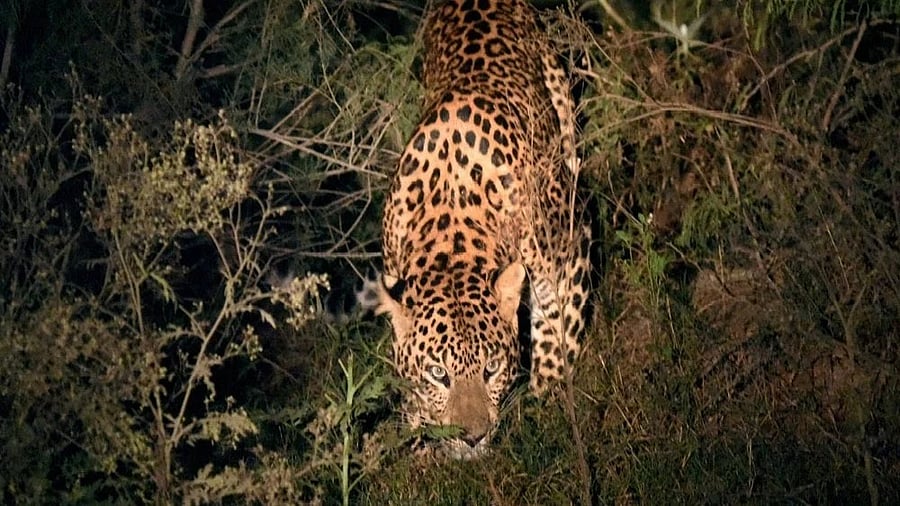
Representative image of a leopard.
Credit: PTI File Photo
Mumbai: Describing the killing of a leopard in Pune district on Tuesday night as a “deeper governance failure” in land-use planning and habitat protection in Maharashtra, environmentalists have appealed to Prime Minister Narendra Modi to intervene and ensure the state adopts a science-based, humane strategy for managing human–wildlife conflict.
“Protecting human lives is essential. But the solution is fixing the landscape — not eliminating the wildlife pushed into it,” NatConnect Foundation said in its appeal to the Prime Minister.
NatConnect director B N Kumar, who has filed the plea through the PMO Public Grievance portal and launched an online petition, said human–wildlife conflict has escalated because forests are shrinking, natural corridors have been fragmented, and new settlements are expanding into traditional wildlife movement zones without ecological assessment.
The Foundation pointed out that open garbage dumps and rising stray dog and monkey populations near forest fringes create an artificial prey base that draws predators closer to human habitation.
“Killing the leopard does not remove the attractants or restore lost habitat. It only destabilised the ecosystem and leaves a vacuum where another, potentially more stressed leopard moves in,” the petition stated.
Conservationists highlighted that leopards are territorial and play a stabilising role in regulating prey populations. When a resident leopard is removed, conflict often increases, because a new leopard moves in to occupy the vacant territory. Studies from Maharashtra, Karnataka and Uttarakhand show that relocated leopards frequently travel long distances attempting to return to familiar terrain, passing through villages and increasing risk during the process.
Activists also referred to India’s experience with the cheetah translocation to Kuno. Despite extensive planning, several animals struggled with new ecological conditions. “The lesson is clear,” Kumar said. “Ecosystems cannot be re-engineered by administrative decisions alone. Landscape continuity and ecological balance take time.”
Environmental advocate Jyoti Nadkarni said: “The leopard is an essential part of the food chain and the wider food web. Removing it disturbs a balance that is far more complex than we acknowledge. The resulting imbalance may create challenges more severe than the original conflict. Before taking such irreversible steps, we must understand the long-term ecological consequences. We must think before we act.”
NatConnect has urged the government to focus on protecting wildlife corridors, regulating forest-edge development, improving waste management, humane control of free-ranging dogs, timely relief to affected families, and trained rapid-response teams to handle incidents sensitively.
“The Pune incident must be treated as a wake-up call to address root causes, not repeat reactionary measures,” the Foundation said.